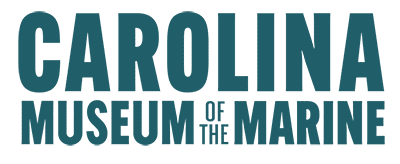Front and Center Newsletter – Vol. 2, No. 10, October 2023
FRONT AND CENTER
Vol. 2, No 10, October 2023
Mission
Honoring the legacy of Carolina Marines and Sailors, inspiring future generations
Message from the CE0
We are aggressively working with the Department of the Navy (owner of the land) to expedite the processing of the site lease. Fortunately, it is no longer a question of “if it is happening” but rather “when it is happening”. We remain confident that we will have the site lease by February (it takes 6 months to execute), and we will start construction in May / June 2024.
While museum construction is the main effort, it is just as important now to ensure we are ready to successfully operate the museum on “opening day”. We are now in the process of developing an operational plan that looks forward to “opening day” in 2026. It will address our organizational goals, objectives, and the supporting actions required to achieve our vision of a world-class museum. We will keep you updated on this effort.
As we move forward, it is important to remember what we stand for.
The Museum will:
The Museum’s Vision is:
The Museum’s Core values are:
Thank you for your continued support!
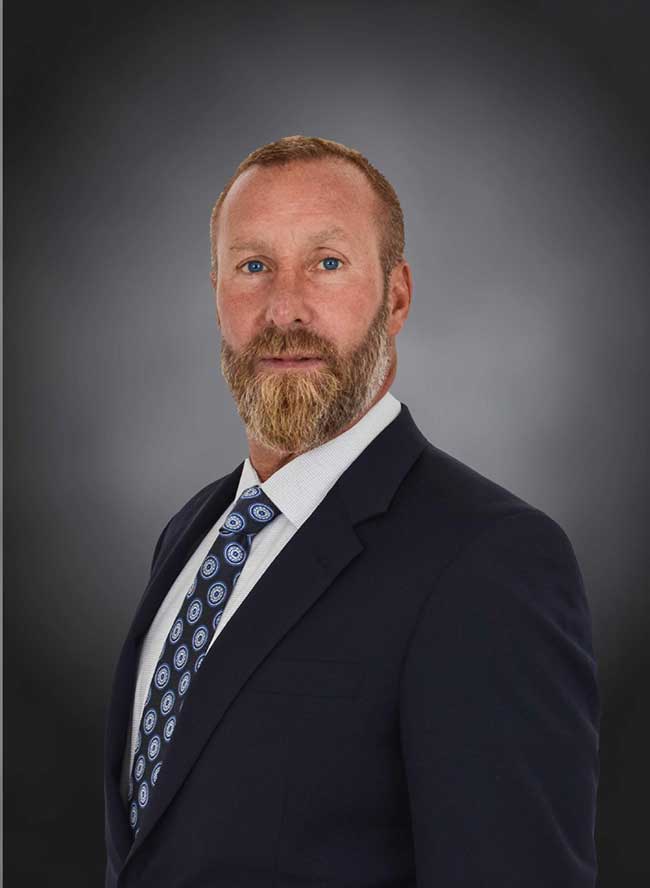
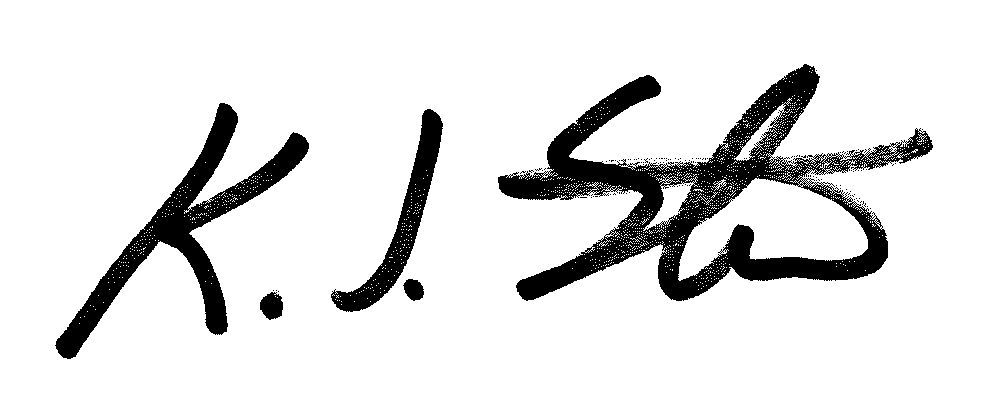
BGen Kevin Stewart, USMC (Ret)
Chief Executive Officer
Meet the Accession Board for Carolina Museum of the Marine.
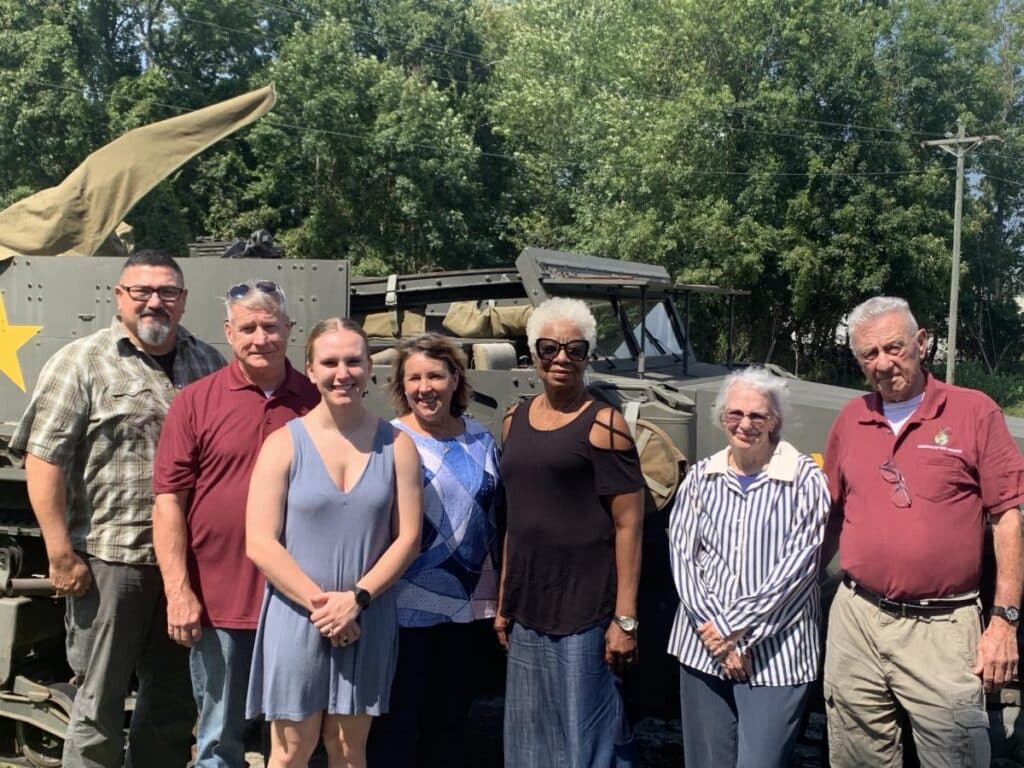
From left to right:
SgtMaj Will Frye, USMC (Ret), CWO5 (Gunner) Duane Richardson, USMC (Ret), 2ndLt Carlie Shaffer, North Carolina National Guard, Curator CWO5 Lisa Potts, USMC (Ret), SgtMaj Cherry McPherson, USMC (Ret), MSgt Frances Hayden, USMC (Ret), and Director of Operations SgtMaj Joe Houle, USMC (Ret).
General Al Gray’s birthday guests stopped by to talk about their experiences with the 29th Commandant over his many years of service to this nation. Below, General William “Spider” Nyland, USMC (Ret) has much to say. See other interviews celebrating General Gray and his legacy at General Al Gray’s 95th Birthday.
Self-Possession
by James Danielson, PhD
USMC Veteran
In September, we published “On Honor, Courage, and Commitment.” The piece was written in two parts: the first describes the natures of honor, courage, and commitment, identifying them as virtues, and the second discusses the nature of virtue in general, how virtues may be acquired, and how they guide conduct. This is a first step in pursuit of a central goal of the Al Gray Marine Leadership Forum at Carolina Museum of the Marine, which is to assist individual American men and women in developing their abilities to take full possession of their lives, living them with direction and purpose, and thus acquiring also the ability to contribute to the well-being and growth of their families, friends, and co-workers. Certainly, we will concern ourselves with leadership more popularly understood, that is, guiding others in a military unit or other kind of organization to the successful completion of a mission, but good leaders must also be well-developed human beings, and so we will pay significant attention to this important concern.
What we are calling self-possession is the quality of governing oneself out of the inner resources one has developed over time. It has long been observed that the basic elements of human nature are intellect and will. Some people familiar with the writings of Aristotle (d. 322 B.C.) will say that he often described human beings as rational animals, but in fact his position was that we are beings capable of rational thought, but that skill has to be developed. So, our nature is intellectual because we have minds, and moral because we have wills, and thus the virtues, as we will discuss later, are moral and intellectual. But for this writing, we want to focus on a most important element of self-possession: a commitment to speak truthfully at all times. If a people are to enjoy a healthy society having a cultural tradition in which individual human beings, with sufficient effort, can flourish as human beings, people must be able to trust one another. In the absence of trust, the behavior of people becomes distorted because they feel unsafe, and thus the first motive in acting with others is self-protection rather than healthy cooperation. Where, however, there is an expectation that in conversation people are to tell the truth, the atmosphere of social trust that emerges makes for a well-working society in all its aspects.
Some people have objected to this contention that we should each be committed to speaking the truth at all times arguing that this is not desirable because it can lead to bruised feelings and tension, even conflict, in one’s relations with others. If, for example, a beloved aunt seeks praise for a hat that elicits laughter, even derision, one should give her the praise she seeks and not the laughter for this will hurt the aunt’s feelings. Yet, praising the aunt’s hat, which one thinks does not deserve it, would not be to speak truthfully. Is bluffing in poker culpably dishonest? Is it morally blameworthy to open a running play in football by faking a pass (which may not involve speaking, but it is deceptive)? More seriously, is deception in warfare morally permissible? The examples of poker, football, and even warfare, are not difficult to explain. In any activity in which people engage where there are rules involved, the rules may permit behavior that under normal circumstances would not be permissible. When someone agrees to a boxing match, he agrees to allow the other guy to punch him in the face in exchange for counter-punches, but this is no way to greet someone on the street. In poker, the rules allow bluffing. In football, one expects attempted trickery. But these behaviors would be out of place in our daily interactions with neighbors and others in society. In the case of warfare, the importance of deception is self-evident.
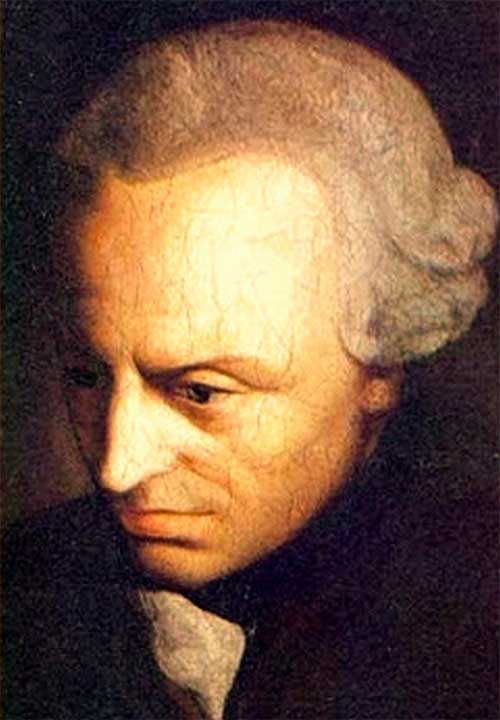
Regarding the beloved aunt, we may recognize that it is possible for two apparent obligations to conflict. This is the definition of a moral dilemma, that is, a situation in which it appears that no matter what one does, an obligation will be violated. We accept the duty to speak honestly, but we accept also the duty to be gentle and protective of those we love. In a situation like this, one is called upon to exercise practical judgment to determine which obligation is the stronger. We can gain greater clarity about this question of truth-telling by considering the core concepts of the moral philosophy of the 18th century German thinker Immanuel Kant.
The Boatswain’s Call
The Boatswain’s Call (or Bosun’s pipe) is a tradition dating back to the Age of Sails. The Bosun’s call pictured here belonged to shipmate Burt Brown who served aboard a Landing Ship Medium (LSM). Since the birth of the United States Marine Corps, the vital relationship with United States Navy has required a mutual understanding of naval terminology and customs. Historically, the Bosun’s pipe alerted the crew to important messages, like vessels coming alongside and the arrival of visitors. Although today’s modern warships are outfitted with the most advanced technology, customs like the Bosun’s call and manning the rails remain traditions of shipboard life that have defined the winning Navy Marine Corps team.
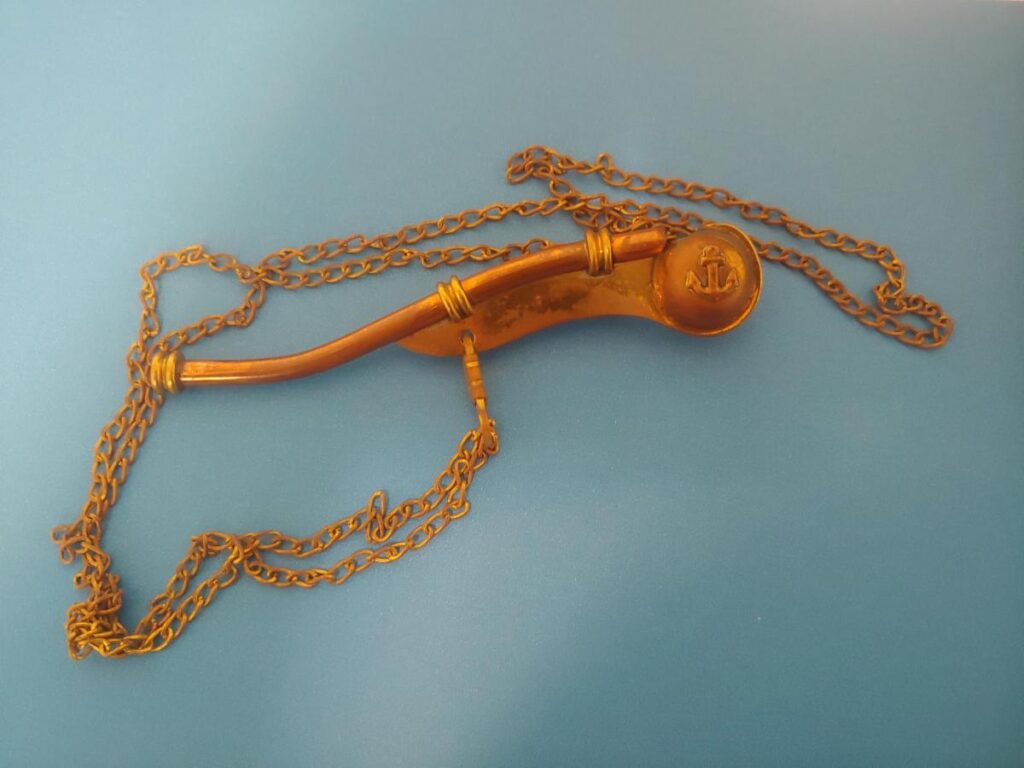
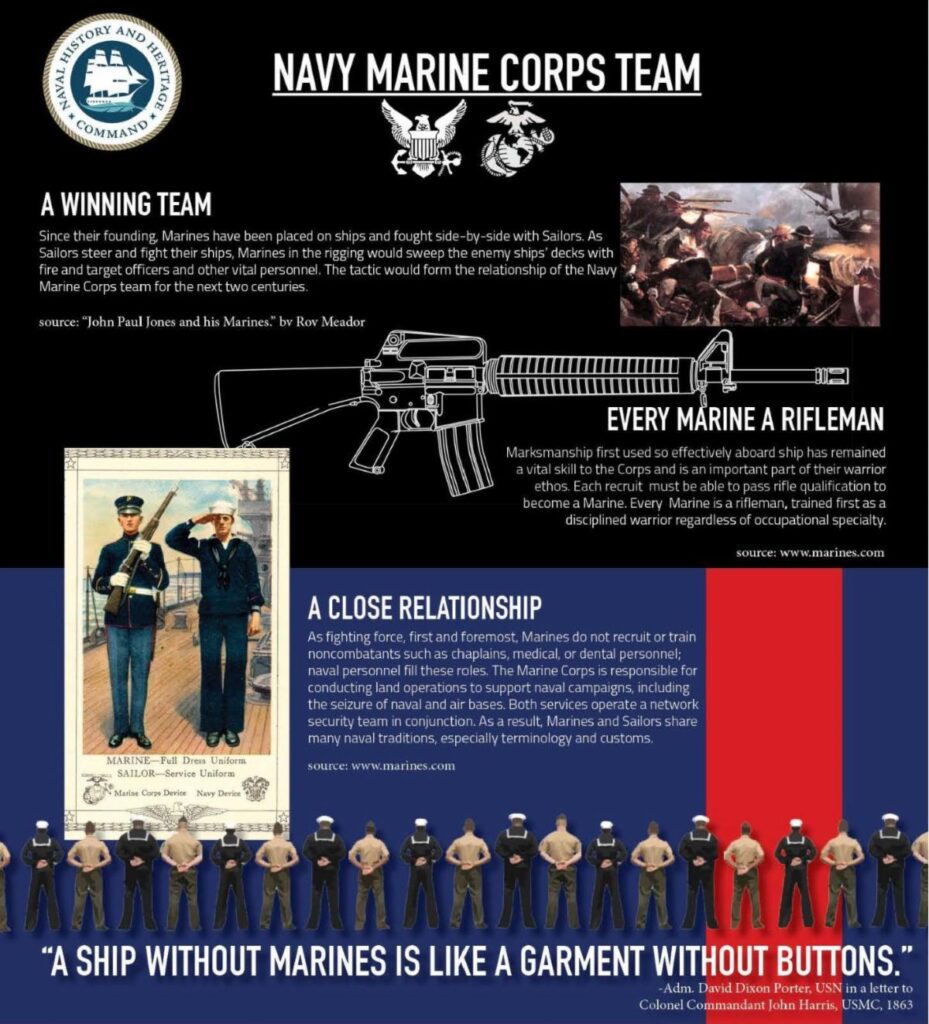
Please join us in supporting the mission of
Carolina Museum of the Marine.
When you give to our annual campaign, you help to ensure that operations continue during construction and when the doors open!
Stand with us
as we stand up the Museum!
Copyright October 2023
Carolina Museum of the Marine
2022-2023 Board of Directors
Executive Committee
LtGen Mark Faulkner, USMC (Ret) – Chair
Col Bob Love, USMC (Ret) – Vice Chair
CAPT Pat Alford, USN (Ret) – Treasurer
Col Joe Atkins, USAF (Ret) – Secretary
Mr. Mark Cramer, JD – Executive Board Member
General Al Gray, USMC (Ret), 29th Commandant – Executive Board Member
MajGen Jim Kessler, USMC (Ret) – Executive Board Member
Col Grant Sparks, USMC (Ret) – Executive Board Member
BGen Kevin Stewart, USMC (Ret), CEO, Ex Officio Board Member
Members
Col Joe Atkins, USAF (Ret) – Secretary
Col George “Bill” Ayers, USMC (Ret), Emeritus
Mr. Mike Bogdahn, US Marine Corps Veteran
Mr. Keith Byrd, US Marine Corps Veteran
MGySgt Osceola “Oats” Elliss, USMC (Ret)
Mr. Frank Guidara, US Army Veteran
Col Chuck Geiger, USMC (Ret)
Col Bruce Gombar, USMC (Ret)
LtCol Lynn “Kim” Kimball, USMC (Ret)
CWO4 Richard McIntosh, USMC (Ret)
LtGen Gary S. McKissock, USMC (Ret)
Col John B. Sollis, USMC (Ret)
GySgt Forest Spencer, USMC (Ret)
Staff
BGen Kevin Stewart, USMC (Ret), Chief Executive Officer
Ashley Danielson, Vice President
SgtMaj Joe Houle, USMC (Ret), Operations and Artifacts Director
CWO5 Lisa Potts, USMC (Ret). Curator


